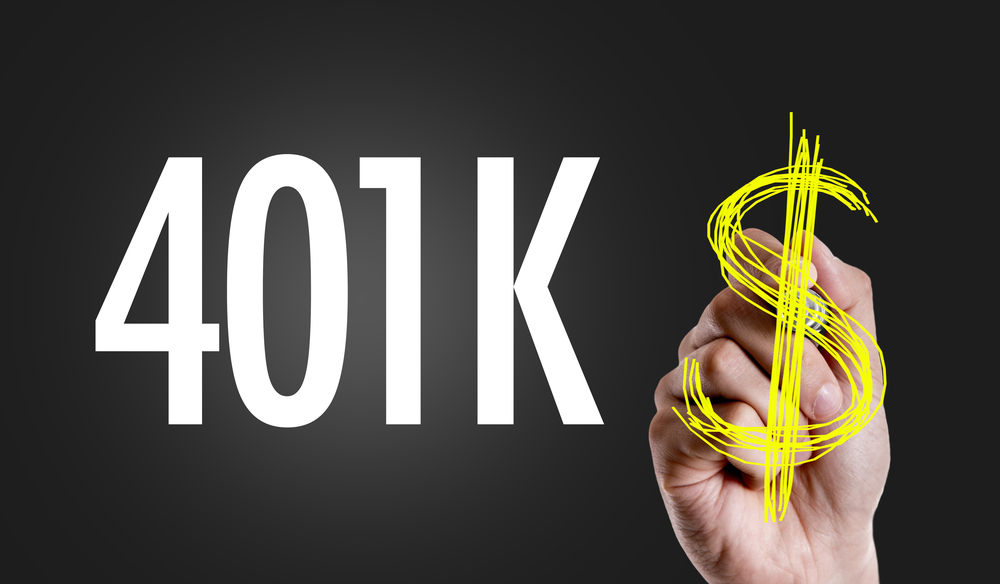
It’s tempting to view your 401(k) as a financial safety net during tough times, but tapping into it too early can turn into a costly regret. Many Americans make a 401(k) withdrawal mistake without realizing how severe the tax consequences can be until it’s too late. Between early withdrawal penalties, higher taxable income, and potential loss of future growth, a single decision can set back years of retirement progress. Understanding what triggers those massive penalties—and how to avoid them—can help you protect your long-term financial security.
1. Why Timing Matters So Much with 401(k) Withdrawals
Your retirement account is designed for the long haul, not short-term cash flow. The IRS enforces strict rules on when and how you can withdraw funds without penalty. Generally, taking money out before age 59½ triggers a 10% early withdrawal penalty on top of regular income taxes. That means if you withdraw $20,000, you could lose $2,000 instantly in penalties, plus several thousand more in taxes. Avoiding this 401(k) withdrawal mistake begins with understanding the timing and purpose of your withdrawals.
2. The Hidden Tax Trap Behind Early Withdrawals
Even if you accept the 10% penalty as the “cost of access,” the real hit comes from how 401(k) withdrawals are taxed. Every dollar you pull out is treated as ordinary income, which can push you into a higher tax bracket. Many people make the 401(k) withdrawal mistake of assuming they’ll owe only the penalty, then face surprise tax bills the following spring. That combination of penalties and taxes can easily wipe out 30% or more of the withdrawn amount. Planning ahead for taxes—or better yet, avoiding early withdrawals altogether—can save thousands.
3. Exceptions That Don’t Always Protect You
There are limited exceptions to avoid the early withdrawal penalty—such as disability, certain medical expenses, or a court-ordered withdrawal in a divorce. However, even these situations can trigger partial taxation if not handled correctly. One common 401(k) withdrawal mistake is misunderstanding the difference between penalty-free and tax-free. Just because you avoid the penalty doesn’t mean you escape income tax. Always verify with a tax professional before assuming an exception applies, because one error in documentation can undo the entire exemption.
4. Loans: A Safer Alternative That Still Carries Risk
Some 401(k) plans allow participants to borrow from their accounts instead of withdrawing funds outright. This can be a way to access cash without committing the classic 401(k) withdrawal mistake—but it’s not without danger. If you leave your job before the loan is fully repaid, the remaining balance may be treated as a withdrawal, triggering both taxes and penalties. Plus, while you’re repaying yourself with interest, your investment growth stalls. A 401(k) loan should be treated as a last resort, not a convenience.
5. Rolling Over Funds Incorrectly Can Also Cost You
Another common 401(k) withdrawal mistake occurs when people switch jobs and mishandle their rollover. If you take a distribution check and fail to deposit it into another qualified retirement account within 60 days, the IRS treats it as a withdrawal. You’ll owe taxes and possibly the 10% penalty, even if your intention was just to move the money. A direct rollover—where funds go straight from one custodian to another—avoids that risk entirely. Always double-check rollover procedures before touching your retirement funds.
6. How Early Withdrawals Can Derail Long-Term Goals
Beyond immediate taxes and penalties, early withdrawals can quietly sabotage your future wealth. Every dollar you remove today loses decades of potential compound growth. For example, taking $15,000 out of your account at age 35 could cost over $100,000 in lost earnings by retirement. That’s the true cost of the 401(k) withdrawal mistake—it doesn’t just hurt today’s balance, it robs your future. Protecting your retirement means treating that account as untouchable except in absolute emergencies.
7. Smarter Alternatives to Withdrawing from Your 401(k)
Before committing to a withdrawal, explore other financial solutions. Refinancing debt, taking a home equity line of credit, or even using a low-interest personal loan can be far less damaging in the long run. You can also review your budget for temporary cutbacks or negotiate payment plans with creditors. If you qualify for a Roth IRA, those contributions (not earnings) can be withdrawn tax-free without penalties, offering a safer emergency option. Thinking creatively before making a 401(k) withdrawal mistake can preserve your retirement stability.
Guarding Your Retirement from Costly Decisions
Avoiding a 401(k) withdrawal mistake isn’t just about following IRS rules—it’s about protecting the life you want after you stop working. A single early withdrawal can set you back years, both financially and emotionally, as you watch compound growth slip away. Before touching your retirement funds, always explore every other alternative and consult a qualified financial advisor. The short-term relief rarely outweighs the long-term damage. Your 401(k) was built for your future—make sure it stays that way.
Have you ever considered taking money out of your 401(k)? What alternatives did you explore first? Share your experience and insights in the comments below!
What to Read Next…
- Act Now to Maximize Your Tax Deductions Before the Annual Deadline
- 401k Fees Seem Excessive—Are You Getting Ripped Off?
- Could Ignoring Tax Penalties Cost You More Than Debt
- What Happens When You Leave Old 401(k)s Behind at Former Jobs
- What Happens When You Rely Too Much on Tax Refunds
The post The 401(k) Withdrawal Mistake That Triggers Massive Tax Penalties appeared first on The Free Financial Advisor.






